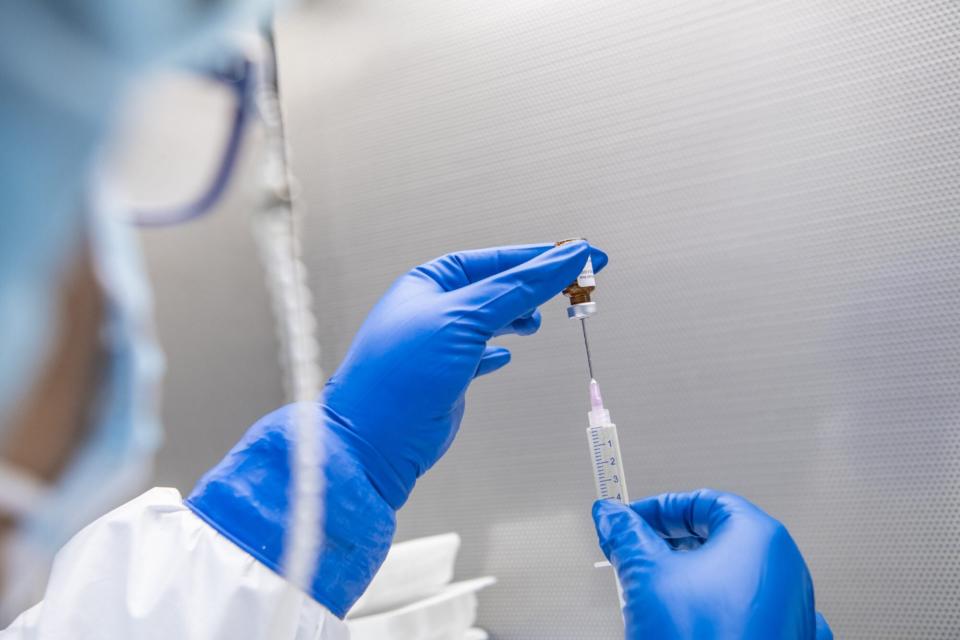New Breast Cancer Vaccine Trial Underway at Cleveland Clinic

Cleveland clinic
Researchers at Cleveland Clinic announced on Tuesday that they have started a phase 1 vaccine clinical trial in the fight against one of the deadliest forms of breast cancer: triple negative breast cancer.
According to the CDC, triple-negative breast cancer doesn't have any of the receptors that are usually found in the more common types of breast cancer. This form of cancer doesn't respond to hormonal therapy, thus giving patients fewer options for treatment.
"We are hopeful that this research will lead to more advanced trials to determine the effectiveness of the vaccine against this highly aggressive type of breast cancer," G. Thomas Budd, M.D., of Cleveland Clinic's Taussig Cancer Institute, said in a press release.
RELATED: Jill Biden Marks Breast Cancer Awareness Month with a Personal Story: 'I Had to Do Something'
Researchers said the intent of the vaccine is to counteract the cancer, though they said it will likely be decades before it is available to the public.
For the trial, the vaccine will be administered to around 18-24 people, all given different dosages to test its efficacy. Those chosen for the trial are patients who have been treated for and overcome early-stage triple-negative breast cancer within the past three years, but who are likely to experience recurrence.
RELATED VIDEO: Olivia Newton-John Gives Update on Stage 4 Diagnosis, Says She and Hoda Kotb are Breast Cancer 'Sisters'
Researchers said those involved in the study will receive three vaccinations, each two weeks apart, with the purpose of the initial trial to determine the appropriate amount to administer.
Never miss a story — sign up for PEOPLE's free weekly newsletter to get the biggest news of the week delivered to your inbox every Friday.
"Long term, we are hoping that this can be a true preventive vaccine that would be administered to healthy women to prevent them from developing triple-negative breast cancer, the form of breast cancer for which we have the least effective treatments," said Dr. Budd.
According to Johns Hopkins Medicine, about 10-20% of breast cancers are triple-negative, but because it is more difficult to treat and more likely to recur, it has a higher death rate than those with other types of breast cancer. It is also more prevalent in the African American community and in women with mutations in BRCA1 genes.
"This vaccine strategy has the potential to be applied to other tumor types," said Dr. Vincent Tuohy, Ph.D., the primary inventor of the vaccine and staff immunologist at Cleveland Clinic's Lerner Research Institute.
RELATED: Mother and Daughter in Remission After Getting Breast Cancer at the Same Time: 'It Was Scary'
He said the vaccine approach could be a game changer for the entire medical community.
"Our translational research program focuses on developing vaccines that prevent diseases we confront with age, like breast, ovarian and endometrial cancers. If successful, these vaccines have the potential to transform the way we control adult-onset cancers and enhance life expectancy in a manner similar to the impact that the childhood vaccination program has had."
Researchers anticipate the study will be completed by Sept. 2022.

 Yahoo Finance
Yahoo Finance 